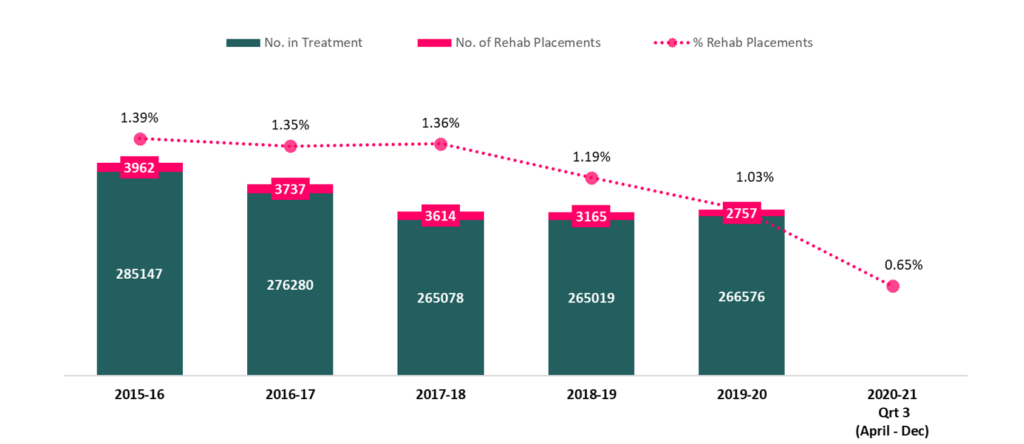
Vital pathways have suffered from the critical combination of reduced budgets and fragmented commissioning, leading to service closures across the country and a steady erosion of expertise and experience.
Within a treatment system that has faced significant cuts to funding in recent years, detox and rehab services have fared particularly badly. Vital pathways have suffered from the critical combination of reduced budgets and fragmented commissioning, leading to service closures across the country and a steady erosion of expertise and experience. There has also been a loss of awareness of the importance of Tier 4 services amongst workers, which has served to reinforce those challenges.
However, the recent funding announcements for substance misuse treatment may signal some hope on the horizon. The £80m boost includes a strand specifically earmarked for detox services, while the larger universal component includes residential support as an expected approach.
This funding will go some way to redressing the need for greater balance in the system so that Tier 4 services are more readily available for some of the most vulnerable people who come into treatment. It is also particularly timely given the imminent publication of the second part of Dame Carol Black’s review of drugs.
This is why we knew it was important to bring together actors from across the system to discuss the challenges Tier 4 services have faced and how the treatment field could map a better way forward together. Our latest webinar held on Thursday 4 March and chaired by Karen Biggs, Chief Executive of Phoenix Futures, featured two panels of experts who presented from a range of perspectives:
- Annemarie Ward, Chief Executive of FAVOR UK
- Hannah Shead, CEO at Trevi House, and chair of the Choices consortium of independent UK Addiction Treatment Centres (Hannah’s presentation)
- Andy Symons, Senior Operations Manager (Oxford) at Turning Point (Andy’s presentation)
- Pete Burkinshaw, Alcohol and Drug Treatment and Recovery Lead at Public Health England (Pete’s presentation)
- Rosalie Weetman, Public Health Lead (Alcohol, Drugs and Tobacco) at Derbyshire County Council, and member of the Advisory Council on the Misuse of Drugs
- Jon Shorrock, drug and alcohol Services Manager at Avon and Wiltshire Mental Health Partnership NHS Trust, and chair of the NHS Inpatient Network (Jon’s presentation)
We have compiled a range of relevant resources which we will continue to update.
Resource bank:
de Andrade D., Elphinston R.A., Quinn C. et al. (2019) – The effectiveness of residential treatment services for individuals with substance use disorders: a systematic review
Department of Health and Social Care (2017) – Drug misuse and dependence UK guidelines on clinical management
Drug & Alcohol Findings (2017) – Residential rehabilitation: the high road to recovery?
European Monitoring Centre for Drugs and Drug Addiction (2014) – Residential treatment for drug use in Europe
Phoenix Futures (2021) – Creating Positive Life Opportunities
Public Health England (2017) – An evidence review of the outcomes that can be expected of drug misuse treatment in England
Scottish Residential Rehabilitation Working Group (2020) – Access to Residential Rehabilitation for people who are dependent on drugs and/or alcohol in Scotland: An overview of the evidence
Sheffield Hallam University and Phoenix Futures (2017) – Residential Treatment Services: Evidence Review
Related Content
Work as recovery: Supporting employment during Alcohol Awareness Week
This Alcohol Awareness Week, WithYou is calling on employers and policymakers to recognise work as a recovery tool, which can change the lives of people
Collective Voice responds to the 10-year health plan
When the plan trumpets ‘a devolved and diverse NHS’, I wonder if it should really be saying ‘ a devolved and diverse health system’ Read
Collective Voice responds to the Independent Sentencing Review
There’s lots to welcome for our field, but the Government should approach some recommendations with caution. It would be a mistake to develop solutions today